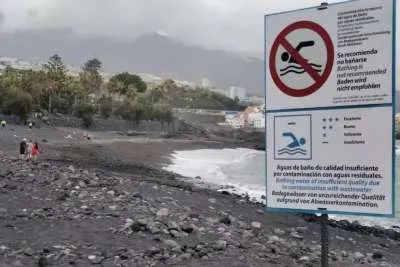Teachers in the Canary Islands forced to live in camper vans
- 09-09-2025
- National
- Canarian Weekly
- Photo Credit: uaucampers
The start of the new school year in the Canary Islands has once again exposed a major problem facing teachers: the lack of affordable housing. Some educators are being forced into finding extreme solutions, including living in vans or campers, as high rents and last-minute postings make it almost impossible to find accommodation.
One such case is that of Aarón Herrera, a primary school teacher who spent 15 days living in his father’s camper while working in Fuerteventura.
“I was assigned on a Friday and had to start on the Monday. Renting a flat for just two weeks was impossible, €600 or €700 for an attic in Gran Tarajal. So, I took my dad’s camper and lived there for three weeks,” he explained.
Last-minute relocations
Temporary teachers (known as interinos) often receive their assignments with only 48 to 72 hours’ notice. This can mean moving to another island almost overnight. “They publish the list of appointments one day, and by the next, you have to be in class. If it’s on another island, you get barely three days,” Aarón said.
After his short-term post, he eventually found a flat in Caleta de Fuste, but the rent was €1,092, while his salary that month was just €1,034. “The rent was higher than my pay,” he said.
Unaffordable rents
Teachers’ unions have warned that access to housing has become a barrier to the profession. Pedro Crespo, president of ANPE Canarias, explained: “In islands such as Lanzarote, Fuerteventura, or in the south of Tenerife and Gran Canaria, rents can consume 40–50% of a temporary teacher’s salary.” In some cases, educators end up living in vans, in overcrowded hostels, or in hotels that take more than 60% of their wages.
According to Gerardo Ramírez, spokesperson for STEC-IC, many teachers now limit the islands they are willing to work on, because they know they won’t be able to afford accommodation in certain areas. The result is that tourist-heavy regions are finding it increasingly difficult to fill teaching posts.
No option to refuse
The education system does not allow teachers to turn down a placement without penalty. If a teacher refuses an assigned post, they risk sanctions and removal from future lists. This leaves many with no choice but to accept positions in areas where living costs make their work almost unsustainable.
The case highlights the growing conflict between the islands’ booming tourism-driven rental market and the housing needs of essential workers such as teachers, who say they are being priced out of the very communities they are asked to serve.
Other articles that may interest you...
Trending
Most Read Articles
Featured Videos
TributoFest: Michael Buble promo 14.02.2026
- 30-01-2026
TEAs 2025 Highlights
- 17-11-2025































































